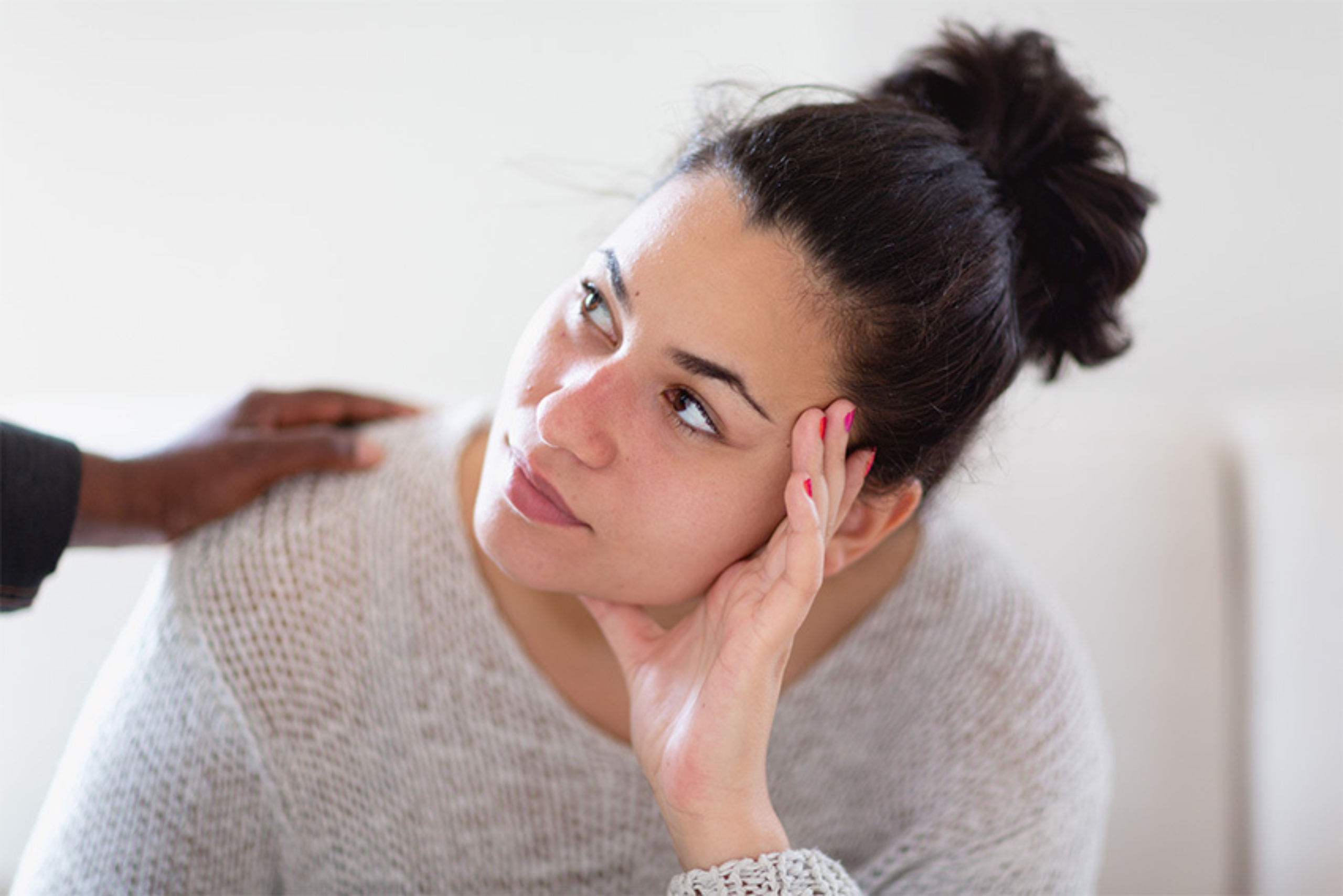Managing the Winter Blues
How you can turn that frown upside down
Reviewed by: Donna Shanor, LCSW, LCDC
Written by: Lauryn Feil and Ashley Lawrence

It’s dark, and it’s cold. Even for Texas. With the 5 p.m. sunsets, erratic temperatures, and cloudy days, winter (even though it’s milder in the south) can feel long and gloomy. And if you’re feeling like the only place you want to be is cuddled up in bed until the sun shines again, know that you’re not alone. In addition to the temperature, your mood may also be taking a dip due to a reduction in mood-boosting sunlight, which can really throw your internal circadian rhythms off.
So, what can you do to get through the winter months if you find the cold, dark days getting you down? UT Health Austin’s Health Social Work team of clinical social workers share ways to recognize winter blues symptoms and recommendations for effective treatment options to keep you feeling merry and bright this season.

Determine if Something Larger Is at Play
Between 10-20% of Americans suffer from the winter blues, while about 6% suffer from a more debilitating condition known as seasonal affective disorder, or SAD. What’s the difference? Feeling lethargic and down during the winter months is fairly common, but these feelings shouldn’t hinder your overall ability to enjoy life and do the things that are important to you. If you find that your winter blues start affecting all aspects of your life – from work to your relationships – you may be facing SAD.
Symptoms of the winter blues:
- Difficulty sleeping
- Difficulty taking initiative
- Feeling less social than usual
- General sadness and lack of energy
Symptoms of SAD:
- Constant fatigue or lethargy
- Feeling down or depressed most the day, nearly every day
- Feeling hopeless about the future
- Having thoughts of death or suicide*
- Loss of interest in activities you typically enjoy
- Struggling to focus and perform at work or at home
- Withdrawal or isolation from friends and family
If you are experiencing depressive symptoms that are affecting your ability to enjoy life, it’s important not to ignore these symptoms. Talk to your primary care clinician or a mental health professional to discuss your options.
*If you or someone you know are having thoughts of suicide, please contact one of the crisis lines below.
Crisis Lines Available 24/7, 365 Days a Year:
- Integral Care Help Line: Call 1-512-472-HELP (4357)
- Suicide and Crisis Lifeline: Call or Text 988
- Emergency Services: Dial 9-1-1
- Crisis Text Line: Text TX to 741741
Try Improving Your Mood

Use Light Therapy
Natural sunlight is a great source of vitamin D and also helps regulate the release of melatonin. Even if it’s cold, try to take advantage of the few sunny days that come around in the winter by taking a stroll outside during lunch or spending time outside on weekends. Exposure to natural light is one of the most effective winter blues treatments. During gloomier days, you can also replicate natural light with light boxes, which use white fluorescent bulbs to mimic sunlight.

Normalize Circadian Rhythms
In additional to light therapy, going to sleep, waking up, and even eating meals at about the same time every day can help regulate the body’s internal circadian rhythms. By staying on a regular schedule, your body can better regulate your hormones and mood.
Maintaining a set schedule and carrying out routines can also produce feelings of comfort and safety, which can help lessen personal anxieties and stressors.

Download a Helpful App
Whether you are struggling with loneliness, grief, or extreme stress, mobile apps can provide quick and easy access to resources when you need them. Many of these apps have built-in games and daily activities as well as diaries and logs to track your mood, the ability to set goals, and other helpful practices, such as visualization, mindfulness meditation, muscle relaxation, and shared breathing techniques.
Potential apps to review:

Eat a Well-Balanced Diet
Ditch the leftover holiday cookies and opt for healthier options that provide energy and can boost your mood. Complex carbohydrates, such as whole grains, as well as fruits and veggies, such as apples, bananas, broccoli, kale, and carrots can boost energy and mood and are great for your overall health. If you’re going to indulge in something sweet, go for the dark chocolate as it can raise your serotonin levels to help you feel happier.
Explore these ways to develop healthy eating practices while spending more time at home.

Exercise
Research consistently shows a strong exercise-mental health connection, particularly for those with depression or anxiety. Exercise can increase serotonin and endorphins, which both affect your mood. Moderate exercise of at least 30 minutes a day can provide the biggest mood boost. You can bundle up for a walk, head to the gym, or visit your favorite studio.
In the midst of a pandemic, venturing out to visit a local gym or fitness studio may be unsettling. If this is the case, check out these ways to stay active while at home to help burn off mild to moderate depressive feelings.

Socialize
It may seem overwhelming but staying connected with the people you love and care about does wonders for your mood. Even as we exercise precaution this holiday season, it is still important to minimize isolation, which can enhance winter blues symptoms.
Boost your mental health as well as the mental health of your family, friends, and neighbors by:
- Hosting a virtual watch party
- Proposing a virtual bake-off
- Sending care packages
- Sharing traditional family recipes
- Video calling
- Writing letters
Taking time to engage in activities you enjoy on your own can also increase your overall feelings of happiness and positivity.
Seek Additional Treatment
It’s really no mystery why so many people are moving down south as six months of winter blues can really take a toll on a person’s mental health and happiness. Winter blues or SAD can affect anyone, and if you are trying to help yourself feel better but it isn’t working, you may want to see your doctor for other treatment recommendations.
To request an appointment with UT Health Austin’s Primary Care Clinic or UT Health Austin’s Walk-In Clinic, call 1-833-UT-CARES (1-833-882-2737) or visit here.